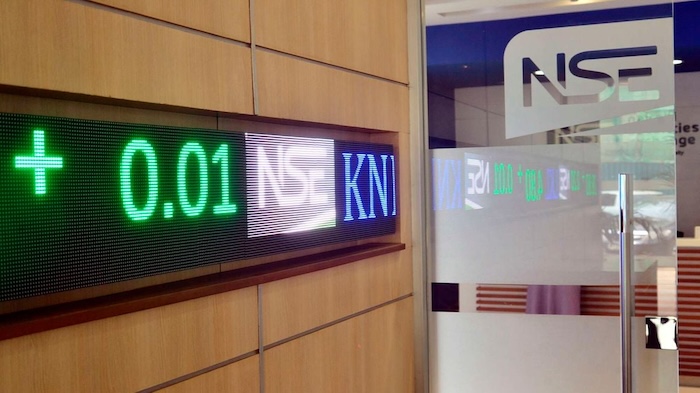The current turmoil in the markets in Europe, Japan and the United States of America may bode well for East African bourses, which have for months been caught in the undertow of the former’s bull runs.
Analysts project that with the jitters currently experienced in the world’s largest equity markets, investors may turn to smaller frontier markets, which could benefit the exchanges in the region.
The region’s largest bourse, the Nairobi Securities Exchange (NSE) has this week seen an upsurge in activity, gaining at least Ksh15 billion ($116 million) in total share value on Tuesday alone, when mass selloffs rocked the world’s largest stock markets.
“This [turbulence], in our view, will see capital inflows and improved investor appetite on better valuation metrics within the frontiers—in effect extending the bull run in many frontier markets,” said Wesley Manambo, research associate at the Nairobi-based Standard Investment Bank.
Investors in the world’s largest markets such as the New York Stock Exchange in the US, Japan’s Tokyo Stock Exchange and the London Stock Exchange, among others, have lately been selling their portfolios amid fears of a possible recession in the US.
“Since the US is the largest market, a recession would ripple globally through sentiments and trade to cause an overall slowdown, thus jitters in the US in effect cause investors globally to fly to cash resulting in sell-offs,” explained Mr Manambo.
The impact of the sell-offs has been evident in the key indices that track the performance of the top stocks in the advanced markets.
The Standard and Poor’s 500 (S&P500), which tracks the performance of the 500 top stocks in the US, has in the last week dropped by over 6 per cent, ending a bull run the market has enjoyed over the last few months. It’s equivalent in Japan, the Nikkei Index, which tracks the top 225 stocks at the Tokyo Stock Exchange, has dropped by close to 7 per cent in the last week alone, coming shortly after its long rally since March.
The Shanghai Stock Exchange Composite Index in China and the Euro Stoxx 50 index have also fallen by about 1.5 percent each over the last week.
Meanwhile, East African market indices have this week remained buoyant, with some like the NSE All-Share Index rising marginally.
The Uganda Securities Exchange, which started gaining in March, around the same time with the NSE, has also remained steadfast amidst the turmoil, as has the Dar es Salaam Stock Exchange and Rwanda Stock Exchange.
Better prospects for the region’s bourses and other small markets in Africa is not guaranteed though, experts warn. In the worst case scenario, the jitters in the advanced markets may not push investors towards smaller markets.
“We remain cautiously optimistic as a strengthening yen may in the worst case thaw the two-year-long efforts by key central banks to tame inflation in developed markets. The base case, however, suggests that we may see pint-sized rate cuts as macro risks persist,” Mr Manambo argued. “In both scenarios, capital will likely remain concentrated in developed markets with investors favouring investment-grade bonds and higher liquidity buffers.”



























































